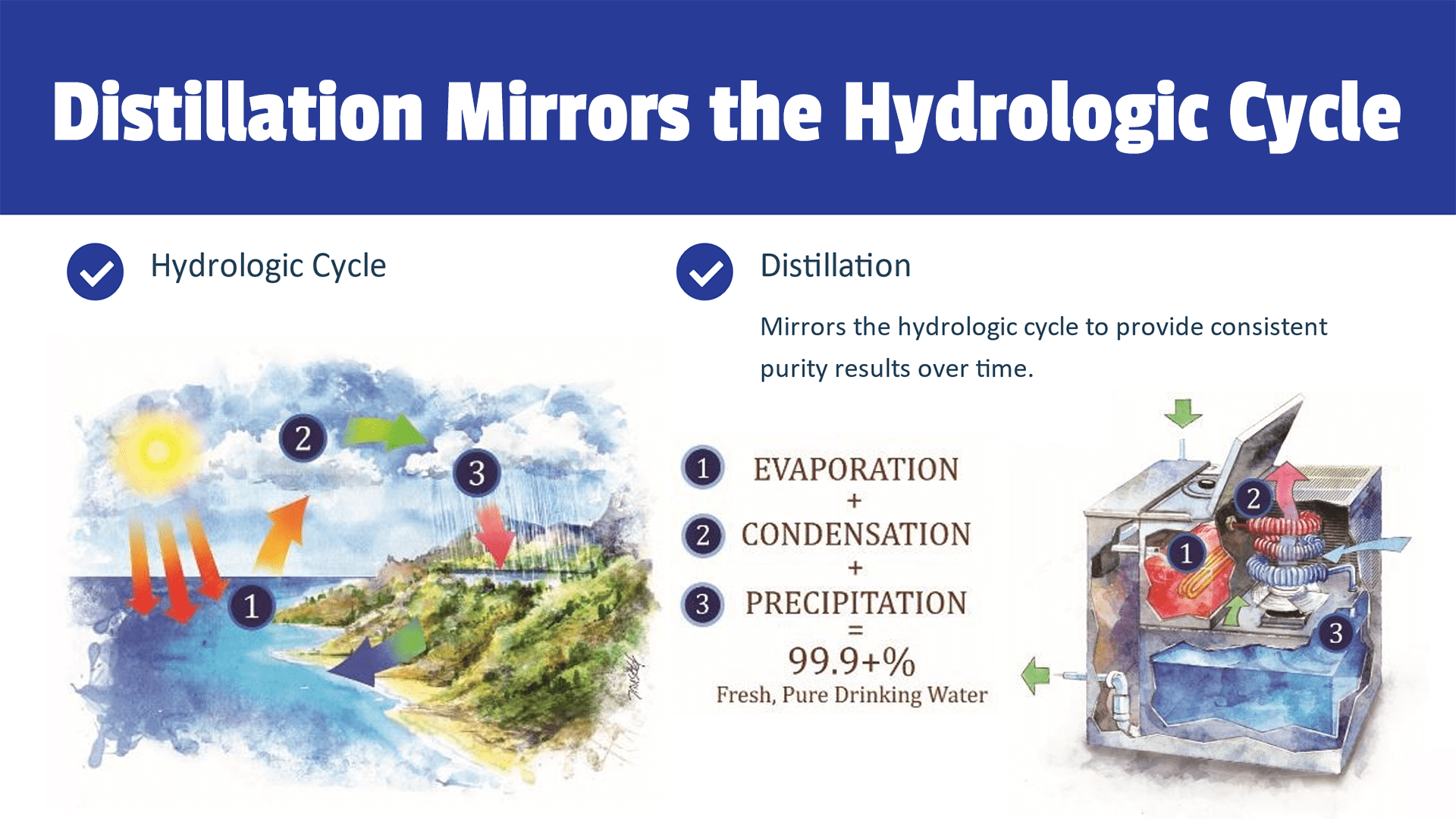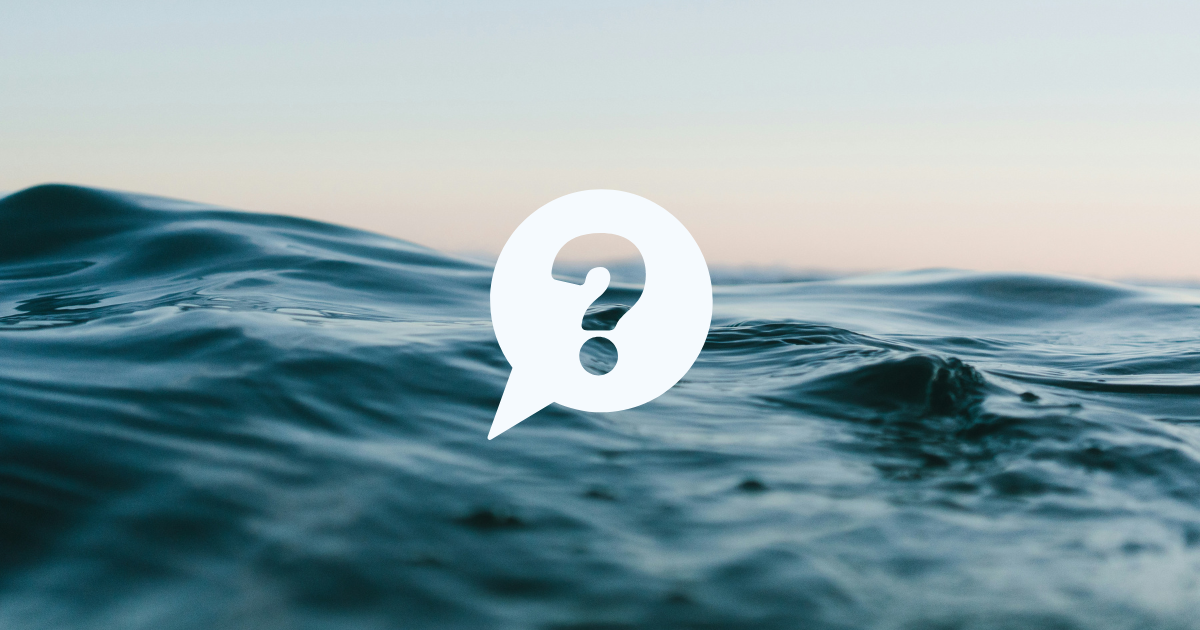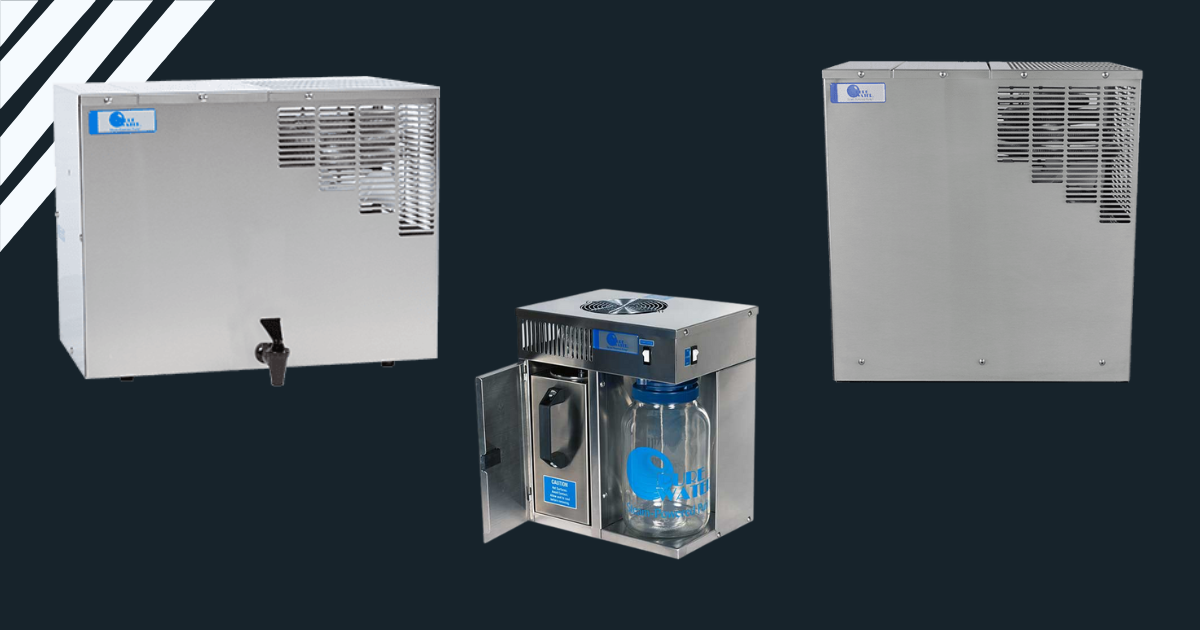
What You Want to Know About Distilled Water: Answering Your Frequently Asked Questions
What Is Distilled Water?
Distillation works by replicating nature’s own purification method—the hydrologic cycle of evaporation, condensation, and precipitation—but in a carefully controlled environment. In this process, water is heated until it becomes steam. As the steam rises, it leaves behind contaminants such as heavy metals, salts, minerals, and many other impurities. The steam is then cooled back into liquid form, resulting in exceptionally pure water.
One of the biggest advantages of distillation is that it removes the widest range of contaminants compared to other methods. Filters and chemical treatments can reduce certain pollutants, but they often leave behind others. Distillation, by contrast, is a complete physical separation process, giving you consistently clean, great-tasting water every time.
Because of this, distilled water is unique. It’s not only the purest form of drinking water but also the most versatile—you can use it in cooking, making coffee or tea, for baby formula, or even in appliances where mineral buildup is a concern. If your goal is to have the cleanest, safest water possible, distillation is one of the most effective and reliable options available.

Is Distilled Water Safe to Drink?
Distilled water is completely safe to drink. A common misconception is that drinking water provides a significant source of minerals like calcium and magnesium. While water can contain these minerals, they are present in inorganic form, and although the body can absorb them to some extent, the amounts are very small compared to what you get from food. Many minerals in tap water are bioavailable, but their contribution to total nutrition is usually very small. Plants absorb minerals from soil and water, convert them into organic compounds through biological processes, and that’s how those nutrients become more bioavailable to us when we eat plant-based foods. This is why a balanced diet—not water—is the reliable way to obtain essential minerals. To meet your daily mineral requirements from water alone, you would need to drink an impractically large volume, which would also increase exposure to other unwanted contaminants.
Why is Distilled Water Used for CPAP Machines and Humidifiers?
Distilled water is recommended for CPAP machines and humidifiers because it’s completely free of minerals like calcium, iron, and magnesium that cause buildup. When tap water is used, these minerals can leave deposits inside the machine, leading to scale, reduced efficiency, and even premature breakdown of parts. Distilled water prevents that, helping your equipment last longer and perform at its best.
It’s also safer for you. In CPAP machines, the water is turned into a fine mist that you breathe in while sleeping. If the water contains minerals or impurities, they can become airborne, irritate your respiratory system, or contribute to infection risk. By using distilled water, you ensure the cleanest possible mist, protecting your health and the equipment you rely on daily.
Why Use a Carbon Filter with a Water Distiller?
Our water distillers are designed to provide the purest drinking water possible, and carbon filters play an important role in that process. While distillation itself removes the widest range of contaminants, carbon filters add an extra layer of protection by targeting volatile organic compounds (VOCs). These chemicals pose health risks—ranging from headaches and fatigue to long-term liver and nervous system concerns—and can also give water an unpleasant, chemical-like taste or smell.
By combining distillation with carbon filtration, our machines ensure that your water is not only safe but also fresh and great-tasting. Every distiller we sell comes equipped with carbon filters, and for best performance, we recommend replacing them every 3–6 months, depending on the model and how often you use it. Keeping up with fresh filters is a simple way to maintain the highest purity level and extend your distiller’s life. You can order replacement filters directly from us to always keep your system running at its best.
Order more water distiller filters here!
How Do You Know that Pure Water Distillers Produce Pure Water?
Delivering the highest-quality water distillers starts with rigorous testing, because accuracy matters. That’s why we work with independent, third-party laboratories to evaluate the performance of our systems. This partnership ensures unbiased, reliable results you can have complete confidence in.
Over the years, we’ve used this data to refine our designs and push purity and performance even further. Every detail of our machines is carefully chosen—from premium USA-made stainless steel to the highest-grade activated carbon in our sewn (never glued) Mini Classic filters. When it comes to your water, we believe only the best materials and processes are acceptable.
We’ve conducted extensive testing across a wide range of contaminants. Below is just a small sample of the results.
Removal of Inorganic Contaminants
Inorganic contaminants include heavy metals, salts, and other compounds that do not contain carbon in their structure. While they may be fewer in number than other types of contaminants, many—such as lead, arsenic, and mercury—are highly toxic and can be present in water supplies. Because of their serious health risks, the U.S. Environmental Protection Agency (EPA) strictly regulates the most hazardous of these substances. Our distillation systems remove inorganic contaminants, ensuring that each cycle delivers cleaner, safer water you can trust.
Inorganic Chemical: Boron
Feed Water Concentration (ppm): .285
Product Water After Treatment (ppm): 0
Percent % Reduction: >99.9%
Inorganic Chemical: Chlorine
Feed Water Concentration (ppm): 1.55
Product Water After Treatment (ppm): 0
Percent % Reduction: >99.9%
Inorganic Chemical: Iron
Feed Water Concentration (ppm): .21
Product Water After Treatment (ppm): 0
Percent % Reduction: >99.9%
Inorganic Chemical: Nitrate
Feed Water Concentration (ppm): 31.65
Product Water After Treatment (ppm): 0
Percent % Reduction: >99.9%
Removal of Radioactive Contaminants
Our distillers also effectively reduce radioactive contaminants, adding another layer of protection to your drinking water. These impurities can include elements such as uranium, plutonium, and strontium-90. While radioactive pollution is often linked to industrial waste or nuclear accidents, it can also occur naturally. For example, uranium is a naturally occurring element found in rocks and soil, and it can leach into groundwater in certain regions. By removing these substances, distillation helps ensure your water remains safe from both man-made and naturally occurring radiation sources.
Radioactive Contaminant: Uranium
Feed Water Concentration: 40.5 ± 3.19 pCi/L ± Error
Product Water After Treatment: 0.000 ± 0.562 pCi/L ± Error
Percent % Reduction: >99%
Radioactive Contaminant: Cesium
Feed Water Concentration: 178.9 ppb
Product Water After Treatment: 0.4 ppb
Percent % Reduction: >99.8%
Removal of Organic Contaminants
Now let’s look at organic contaminants—chemical compounds that contain carbon in their structure. This is a very broad category that includes thousands of substances, many of which come from industrial and agricultural activity. Common examples are pesticides, herbicides, solvents, household chemicals, and byproducts from manufacturing processes. These compounds can enter water supplies through runoff, spills, or improper disposal, and many are linked to significant health risks. Our distillation systems effectively remove a wide range of organic contaminants, providing consistently clean, pure water that is safe to drink.
Organic Chemical: PFOS
Feed Water Concentration (ppb): 7
Product Water After Treatment (ppm): 0
Percent % Reduction: >99.9%
Organic Chemical: Chloroform
Feed Water Concentration (ppb): 575
Product Water After Treatment (ppm): 0
Percent % Reduction: >99.9%
Removal of Herbicides and Pesticides
Any chemical ending in “cide”, such as pesticide, herbicide, insecticide, or fungicide, is specifically formulated to kill. These substances are intentionally toxic by design. While effective in their intended uses, these chemicals can pose serious health risks when contaminating water supplies. Our distillation systems effectively remove many of these harmful compounds, providing an added layer of protection for you and your family.
Herbicides and Pesticides: Glyphosate
Feed Water Concentration Mg/L (ppb): 185.8
Product Water After Treatment Mg/L (ppb): 0
Percent % Reduction: >99.9
Herbicides and Pesticides: Pentachlorophenol
Feed Water Concentration Mg/L (ppb): 60.3
Product Water After Treatment Mg/L (ppb): 0
Percent % Reduction: >99.9
Herbicides and Pesticides: Triclopyr
Feed Water Concentration Mg/L (ppb): 11
Product Water After Treatment Mg/L (ppb): 0
Percent % Reduction: >99.9
Herbicides and Pesticides: Acetochlor
Feed Water Concentration Mg/L (ppb): 1.95
Product Water After Treatment Mg/L (ppb): 0
Percent % Reduction: >99.9
Read more about our 3rd-party water quality test results here.
Shop Water Distillers
Ready to take the plunge and get your very own Pure Water Distiller? Shop now!





Hi!
I recently read online that a distiller does not remove the salts from soft water, is this true? We have a potassium salt softener. The article stated only an R/O system was able to do this. I would love to hear if this is true.
My husband and I have your countertop distiller and love it!
Hi Cheri,
salts do get dissolved in the distillation process! Salt has a much higher boiling point than water; therefore, as water evaporates, it leaves salt behind.
Glad to hear that you are loving your countertop distiller!
Thank you, that is great news! I appreciate your time.
We have distilled our own water for years, I had to work on the unit sever times, but the company was and is very helpful and courtesy.
If someone needs help in our area or needs some repair service I can help.
I love my Pure Water Distiller. However, the only concern I have…and it is definitely a major concern for me, as we use our Distilled water for drinking, is that since it also strips out minerals, I have never understood how much or which minerals are the best to add back to the water. As I understand, distilled water, without minerals, will leach the minerals out of our bones.
Please provide me the best way to add back minerals and the type of minerals, as well as brands that you trust.
Hey Pat!
That is a great question. You see, a common misconception about distilled water is that it “leaches” minerals from your body. This is false because, as humans, we get the vast majority of our minerals from the food we consume, not from the water we drink. While there have been countless research articles done on this, it can still be hard to shake this misconception. So, here is some data to back it up: although there are minerals in tap water, they are not bioavailable, meaning they cannot be absorbed into the body. According to the USDA, average tap water in the United States contains only a handful of minerals that would account for greater than one percent of your daily intake, assuming you drink two liters of water a day.
Although it’s not possible for distilled water, or any water for that matter, to decrease the total number of minerals in your body, it is possible to drink too much water and reduce the proportion of minerals in your body. If this is done in the extreme, this is called water poisoning and can be fatal.
Now, as far as the best way to add minerals back into your diet, a diverse diet of fruits and vegetables is the typical recommendation. As always, consult your doctor on your specific health/medical needs.
Hopefully this helps!
Thank you for this response. It helps a lot!
@Pat I use Trace Pure Ocean Minerals from this website: https://shop.activationproducts.com/products/trace-ocean-minerals
I put only one drop in a glass of water.
I’ve found this product to be of good quality. And I’ve been consuming it for over a year now. I also buy their Perfect Iodine from the same website.
And of course, please do your own research.